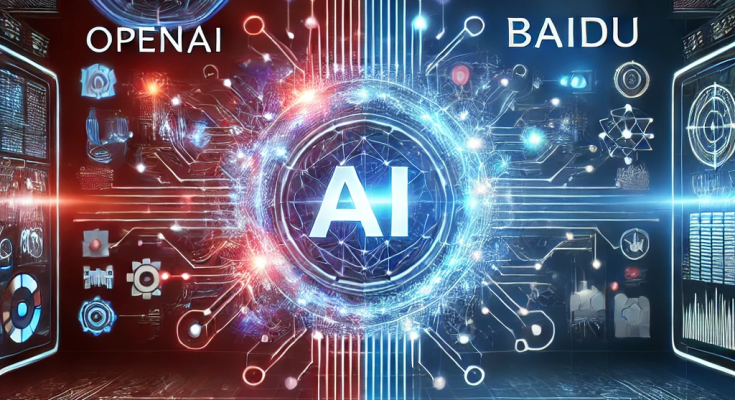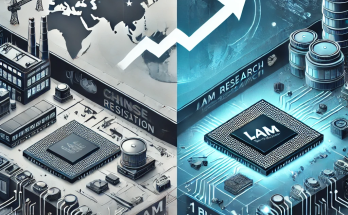Introduction
The artificial intelligence (AI) race is intensifying as global tech giants OpenAI and Baidu push forward with major advancements and leadership shifts.
OpenAI, the pioneering force behind ChatGPT, is undergoing significant internal changes amid speculation of a potential takeover bid from Elon Musk, which has been denied by the company’s board. Meanwhile, Baidu, China’s leading AI company, has announced the release of its next-generation AI model later this year, signaling an aggressive push to compete with U.S.-based AI firms.
These developments mark a crucial phase in the AI industry, as companies race to dominate in generative AI, enterprise AI adoption, and AI-powered automation. In this blog, we dive into OpenAI’s leadership changes, Baidu’s AI ambitions, and what these shifts mean for the future of AI innovation.
OpenAI: Leadership Challenges and Industry Speculation
1. OpenAI Board Denies Elon Musk Takeover Bid
Recent reports suggested that Elon Musk was attempting to take control of OpenAI, the company he co-founded in 2015 but later distanced himself from. However, OpenAI’s board has confirmed that no such offer has been received, putting an end to speculation.
The rumors stemmed from Musk’s public criticism of OpenAI’s direction under CEO Sam Altman. Musk has expressed concerns that OpenAI’s commercialization efforts—particularly its partnership with Microsoft—may conflict with its original mission of open-source AI development for the greater good.
While the takeover reports may be false, the broader tension between AI ethics, open-source development, and corporate control remains a key issue in the industry.
2. OpenAI’s Leadership Moves and AI Advancements
Despite external pressures, OpenAI continues to expand its AI capabilities. Recent developments include:
• Scaling GPT-5 Development: OpenAI is rumored to be working on GPT-5, expected to significantly outperform GPT-4 in reasoning, multimodal understanding, and real-time adaptability.
• Enhancing Enterprise AI Solutions: OpenAI has been actively integrating its models into business applications, with Microsoft embedding OpenAI technology into its cloud and enterprise solutions.
• Hiring AI Ethics and Governance Experts: In response to increasing scrutiny, OpenAI is expanding its AI safety and compliance teams to ensure responsible development.
As OpenAI moves forward, the company must balance innovation with ethical considerations, especially as governments worldwide introduce AI regulations to address bias, misinformation, and security risks.
Baidu’s Next-Generation AI Model: China’s Answer to OpenAI?
1. Baidu’s AI Ambitions
While OpenAI continues to lead the Western AI market, Chinese tech giant Baidu is aggressively developing its own generative AI models to compete on a global scale. The company has announced that its next-generation AI model will be released later this year, promising:
• Stronger Natural Language Understanding: Improvements in multilingual capabilities, including better English and Mandarin fluency.
• Advanced Image and Video Generation: Competing with OpenAI’s DALL·E and Sora for AI-generated media.
• AI for Enterprise Applications: Baidu is focusing heavily on AI-powered tools for business automation, particularly in China’s manufacturing, healthcare, and financial sectors.
2. Baidu’s AI Regulatory Advantage in China
Unlike U.S.-based AI firms, Baidu benefits from China’s tightly controlled AI market, where Western competitors like OpenAI, Microsoft, and Google face restrictions.
• China’s “AI National Strategy” prioritizes domestic AI leaders, allowing Baidu to integrate its AI solutions into state-backed initiatives.
• Baidu’s AI is optimized for China’s internet ecosystem, aligning with government censorship policies and China’s AI ethics framework.
• Collaboration with Huawei and Tencent enhances Baidu’s ability to scale AI adoption in China.
While Chinese AI companies face export restrictions on advanced AI chips, Baidu is working on domestic chip production and AI acceleration technologies to ensure long-term competitiveness.
What These AI Developments Mean for the Industry
1. The AI Race is No Longer Just About Chatbots
While ChatGPT and similar models have driven the AI revolution, the next phase will focus on enterprise adoption, automation, and multimodal AI.
• OpenAI is pushing AI integration into cloud computing and enterprise solutions, ensuring businesses can automate processes efficiently.
• Baidu is developing AI for industrial applications, with a strong emphasis on China’s digital economy and government-backed AI projects.
• Google, Meta, and Amazon are also scaling AI across different domains, from autonomous systems to generative media.
2. AI Regulation and Ethical AI Will Shape the Future
As AI becomes more powerful, governments worldwide are introducing new regulations to manage its impact.
• The EU’s AI Act is setting a global standard for ethical AI deployment.
• China’s AI regulations favor state-controlled AI development, giving Baidu a market advantage.
• The U.S. is introducing AI safety guidelines, but companies like OpenAI and Microsoft are pushing for self-regulation instead of strict government controls.
3. AI Innovation vs. AI Safety: Finding the Right Balance
While companies race to develop more advanced AI models, concerns over misinformation, bias, and job displacement continue to grow.
• OpenAI is expanding its AI safety teams to ensure responsible development.
• Baidu is aligning its AI with Chinese government policies, ensuring compliance with state regulations.
• Ethical AI organizations are pushing for greater transparency in AI decision-making to build public trust.
Finding the right balance between innovation and responsibility will define the next era of AI development.
The AI industry is at a pivotal moment, with companies like OpenAI and Baidu driving major advancements while also facing regulatory, ethical, and competitive challenges.
Key Takeaways
• OpenAI’s leadership remains stable, despite speculation about an Elon Musk takeover.
• Baidu is preparing to launch its next-generation AI model, competing directly with OpenAI and Google.
• AI regulation will play a critical role in shaping the future of AI development, with different rules in China, the U.S., and the EU.
• The next wave of AI adoption will focus on enterprise solutions, automation, and multimodal AI applications.
As AI technology continues to evolve, the companies that balance rapid innovation with responsible AI governance will emerge as the leaders of the AI-driven future.

